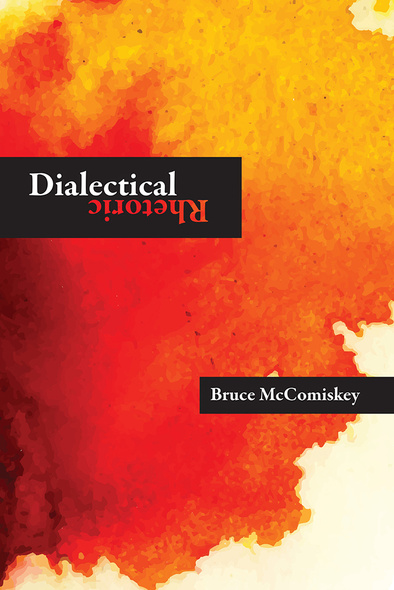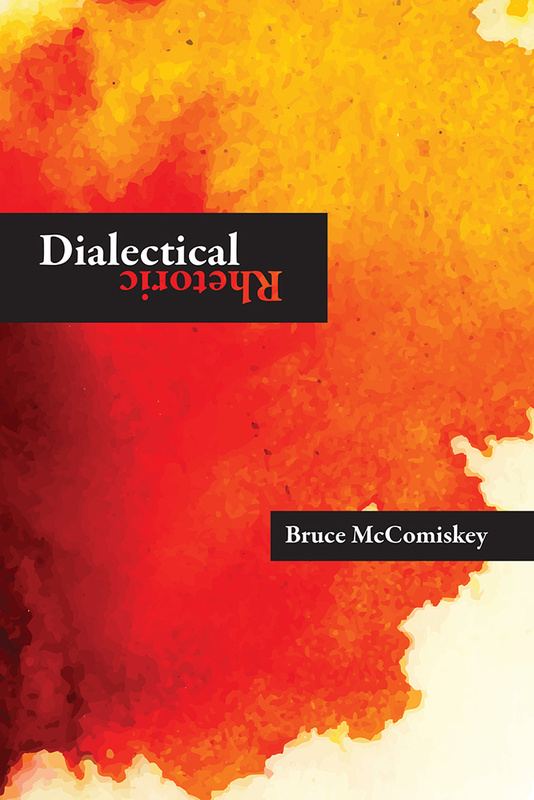In Dialectical Rhetoric, Bruce McComiskey argues that the historical conflict between rhetoric and dialectic can be overcome in ways useful to both composition theory and the composition classroom.
Historically, dialectic has taken two forms in relation to rhetoric. First, it has been the logical development of linear propositions leading to necessary conclusions, a one-dimensional form that was the counterpart of rhetorics in which philosophical, metaphysical, and scientific truths were conveyed with as little cognitive interference from language as possible. Second, dialectic has been the topical development of opposed arguments on controversial issues and the judgment of their relative strengths and weaknesses, usually in political and legal contexts, a two-dimensional form that was the counterpart of rhetorics in which verbal battles over competing probabilities in public institutions revealed distinct winners and losers.
The discipline of writing studies is on the brink of developing a new relationship between dialectic and rhetoric, one in which dialectics and rhetorics mediate and negotiate different arguments and orientations that are engaged in any rhetorical situation. This new relationship consists of a three-dimensional hybrid art called “dialectical rhetoric,” whose method is based on five topoi: deconstruction, dialogue, identification, critique, and juxtaposition. Three-dimensional dialectical rhetorics function effectively in a wide variety of discursive contexts, including digital environments, since they can invoke contrasts in stagnant contexts and promote associations in chaotic contexts. Dialectical Rhetoric focuses more attention on three-dimensional rhetorics from the rhetoric and composition community.
‘What the author proposes here is not found anywhere else, and his development of a third dialectic—that is, an entirely new model for understanding dialectic—well, this is not mere appropriation; this is theory making.’
—Frank Farmer, University of Kansas, author of After the Public Turn and Saying and Silence
'For those interested in the history of rhetoric and its connection to contemporary composition theory and pedagogy, this book is essential reading.'
—College Composition and Communication
Bruce McComiskey specializes in rhetoric and composition, classical rhetoric, and professional writing at the University of Alabama at Birmingham. His most recent publications include Teaching Composition as a Social Process, Gorgias and the New Sophistic Rhetoric, a coedited collection titled City Comp: Identities, Spaces, Practices, and the edited collection English Studies: An Introduction to the Disciplines.





